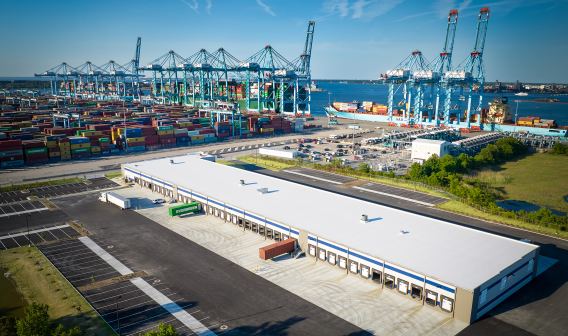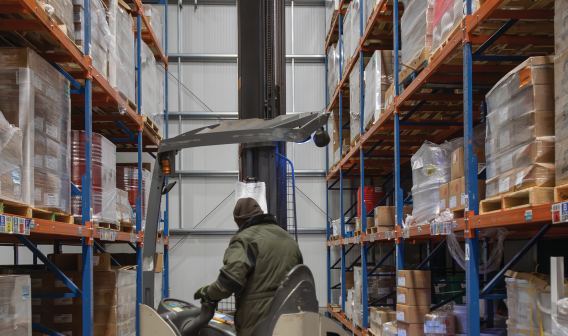Transportation & Quantum: A Major Leap in Optimization
Logistics operators see quantum computing as a way to make small improvements with huge results
The Port of Los Angeles is the largest facility for handling shipborne cargo in the United States. With the help of quantum computing, the port’s second-largest shipping container terminal, Pier 300, dramatically streamlined its operations, with cranes increasing their number of deliveries by more than 60%, and the trucks arriving there each spending nearly 10 minutes less to receive their payloads. Quantum computer experts suggest the experimental devices may one day lead to many other similarly major advances in transportation.
Whereas regular computers switch transistors either on or off to symbolize data as 1’s and 0’s, quantum computers use components known as quantum bits, or “qubits,” which can exist in a state where they can act as both 1 and 0. This essentially lets each qubit perform multiple calculations at once. The more qubits are linked together, the more calculations they can simultaneously perform. A quantum computer with enough qubits could in theory find solutions to problems no classical computer could ever solve.
A key potential application for quantum computers is finding the best solution from a wide range of possible choices. An infamous example of such an optimization task is near and dear to logistics — the “traveling salesman problem,” in which someone is given a list of cities and must find the shortest possible route from a city that visits every other city exactly once and returns to the starting point.
Solutions to the traveling salesman problem can improve delivery of goods. However, “the number of possible solutions to it grows to a vast degree as the number of cities increases,” said Mark Jackson, Ph.D., senior quantum evangelist at quantum computing hardware and software firm Quantinuum. “Optimization problems are where quantum computing can really shine. And the logistics field is interested because if you can make a shipping company 10% more efficient, it would be worth a fortune.”
In addition to those financial benefits, this sort of optimization could have environmental benefits as well, helping minimize time spent idling in traffic and reducing fuel consumption and carbon emissions. The technology can also be used to analyze the behavior of molecular systems, allowing for the development of more efficient chemical processes to improve battery performance.
There is a lot of talk about how quantum computing is still in the future, but quantum computing is already happening now, happening silently.
The increased computational power of quantum computing has the potential to enable supply chain optimizations that account for the entirety of a given ecosystem. Quantum algorithms could help companies manage limited resources more efficiently and shift direction more quickly in the face of sudden disruptions.
For the Port of Los Angeles, quantum software developer SavantX used quantum computing to optimize spacing and placement of containers in order to better integrate their movements with inbound trucks and freight trains. In partnership with Pier 300’s operator, Fenix Marine Services, SavantX developed an elaborate computer-based simulation that served as a “digital twin” of the terminal, focusing on the cranes that collect and maneuver containers. Using a quantum computer from D-Wave with up to 2,048 qubits, SavantX then explored a strategy that scheduled truck appointments based on when cranes were able to access their intended containers.
SavantX began its work in 2018 for Pier 300’s new owners, who had acquired the terminal for about $850 million the year before. In 2022, SavantX revealed that after optimization, on average, the cranes at Pier 300 increased their deliveries per day from 60 to 97, and trucks spent 58 minutes waiting for their payloads instead of 66. When Pier 300 went up for sale in 2021, it was purchased for $2.3 billion, a nearly threefold increase over its previous price.
Quantum software firm Multiverse Computing is conducting similar research for a major port in Spain, said Esperanza Cuenca, the company’s head of strategy and outreach. “We can see significant improvements in operations,” she said. “There is a lot of talk about how quantum computing is still in the future, but quantum computing is already happening now, happening silently.”
She added: “When it comes to quantum computing, I urge everyone willing to craft a strategy and execute it now. We’re seeing with the artificial intelligence (AI) revolution that it happened slowly and silently, but those able to foresee where AI was going are extracting more value now. If you wait with quantum computing, it will be too late.”





